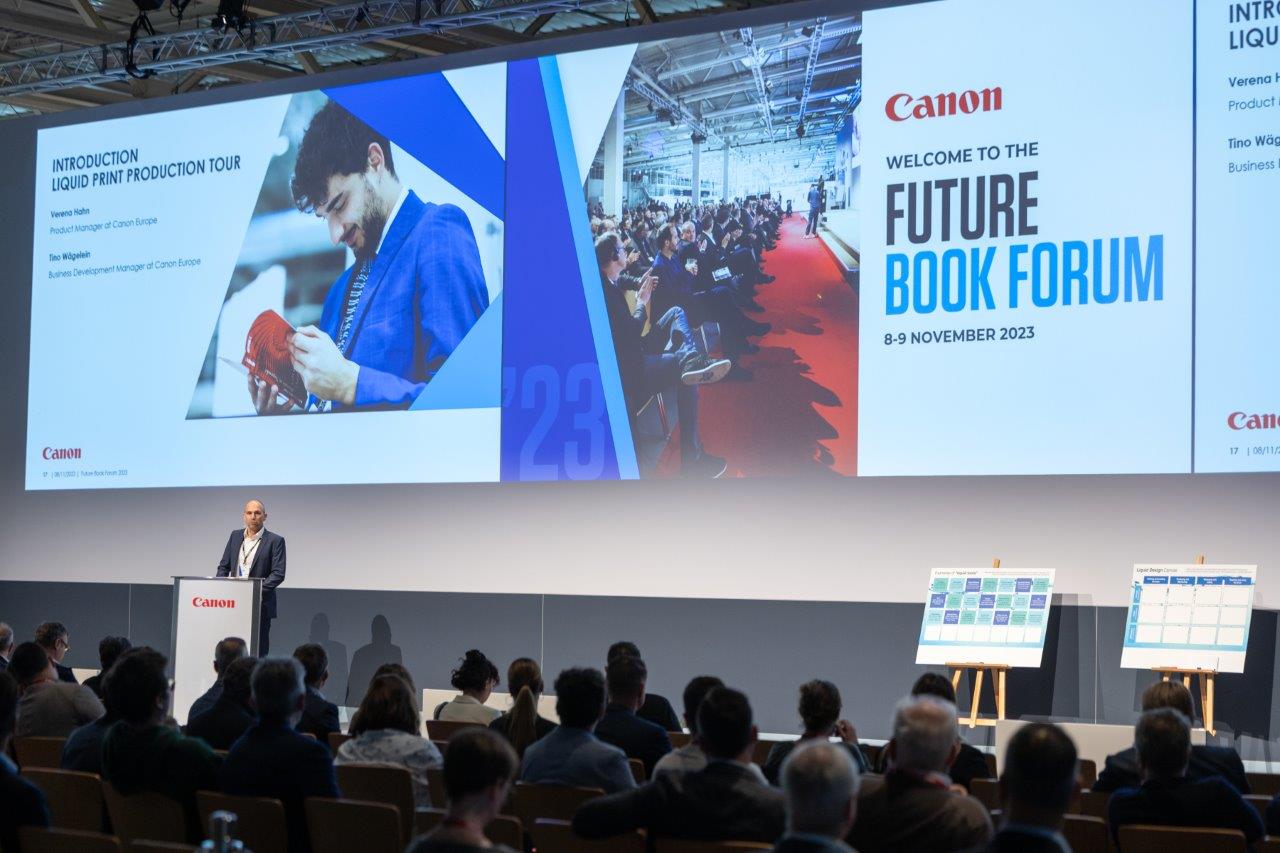Canon opens the new era of publishing with Liquid Design, the revolution presented at the Future Book Forum 2023
Is called liquid book because its contents can change shape depending on the container into which it is poured. A real revolution, according to experts, which, in the era of digital transformation, is forcefully appearing on the publishing market. An unprecedented reading mode, which offers the possibility of leafing through the pages, underlining them, highlighting them, changing the size and fonts of the text, adapting it to the screen of any device.
And for the many who do not wish to give up the paper version, while paying attention to the environment, good news is on the way. In addition to book on demand services and the support of packaging solutions made with innovative and sustainable materials, the Publishing 2030 Accelerator is being studied, working group born last year from an idea by Canon and launched at the Future Book Forum, the construction of a virtual highway, in which the book file travels to the production center (equipped with digital printing technologies) closest to the point of sale, so as to reduce transport distances to a minimum. An absolute novelty that can be achieved through the activation, at a global level, of a network of specialized printers available to all publishers.

Canon: the new era of publishing with Liquid Design
Crucial issues for the future of the sector, which was recently debated in Poing, Germany, during the Future Book Forum 2023, the prestigious international event organized by Canon, now in its tenth edition, which brings together publishers, printers, solution providers and other stakeholders from all over Europeto explore together, through live presentations, round tables, success stories, experiences and brain storming, the universe of reading and its new frontiers.
The concept of liquid design, a definition in which the book is fluidly declined between different channels and formats, connecting physical and digital with an integrated approach, to promptly respond to the transformation of the publishing landscape and the needs of the public, was illustrated by Peter Fiska global thought leader, author, futurist and event moderator, who highlighted the limitless potential of the new reading experience.
Great attention was then paid to the opportunities offered by artificial intelligence in the automatic generation of content and augmented reality. Furthermore, among the topics addressed are strategies for involving the public in an increasingly significant way, building authentic and lasting connections. A leading role, in this context, is played by liquid marketing, a fundamental lever for audience growth, thanks to co-creation and co-promotion between social platforms such as Instagram and TikTok.
The Future Book Forum 2023 was also an opportunity to present the latest results achieved by the Publishing 2030 Accelerator, created with the aim of accelerating systematic change towards sustainability in the book publishing sector. Made up of a group of operators, engaged in three work areas – the measurement of the ecological footprint of a single book, the construction of a distributed book printing network and the re-evaluation of costs and emissions – with the support of IPA (International Publishers Association) and FEP (Federation of European Publishers), the team is working, among other things, on the development of an internationally recognized methodology for calculating the CO2 emissions produced during the life cycle of in book.
















Leave a Reply
View Comments